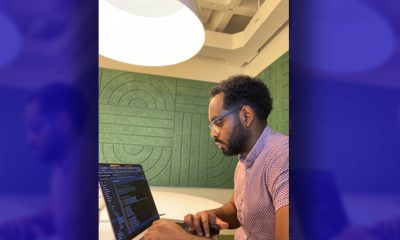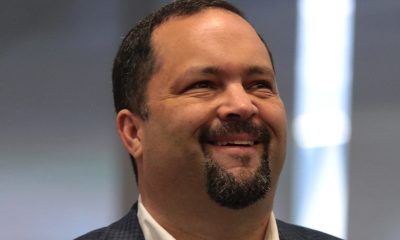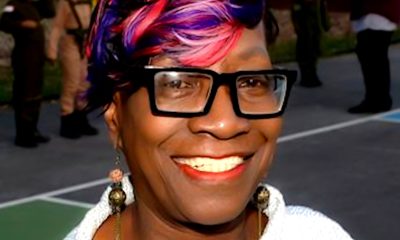Bay Area
Miscarriage: An Unspoken Burden of Loss

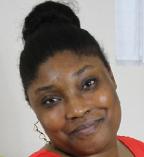
Narissa L. Harris
The holidays bring up a myriad of feelings including joy, anxiety, excitement, and, sadly, loss over a recently departed relative, parent or spouse. But one unspeakable source of sadness that is seldom openly discussed is miscarriage.
While the birth of a new child is often thought of as a returning of a relative or ancestral spirit, miscarriage is steeped in taboo.
Traditionally, our lifestyles supported and honored our ability to talk to the “knowing and knowable” spirits of the yet-to-be-born, the living and those who dwell in the afterlife. This cultural practice helped, in unexplained ways, to experience uninterrupted pregnancies holistically. But it has not addressed the issue of struggling with miscarriage.
I, however, can guarantee you that a Black woman will be struggling with loss due to miscarriage this holiday season. I can say that because of my personal experience.
Before God gave my husband and myself our blessing of joy, I suffered three miscarriages. As a licensed marriage and family therapist, I also know that miscarriage mentally hits Black women much harder than other women.
African-American women are two times more likely to have a miscarriage, stillbirth, or infant death as compared to white women. Socioeconomic status does not influence these results. There is no clear reason why Black women experience miscarriages more often than white women, but research hints to the racial trauma we experience.
Sadly, these higher levels of pregnancy loss add to the already higher rates of depression and anxiety Black women face and there are few programs offering support specifically geared to women who have experienced miscarriages.
This lack of support creates feelings of loneliness and isolation, which, for a Black woman, can increase her potential for depression. It doesn’t help that disconnection from traditional cultural moorings can contribute to further alienation in our daily experiences of being Black.
The best way to support Black women experiencing miscarriages is to first invite them to talk with trusted family and friends and to seek counseling from African-centered trained therapists. During this painful time, I believe we need to recognize and do the following:
#1 – Black women need to be held after experiencing a miscarriage.
We may say we don’t; we may even push you away. But we need to be held physically and emotionally during this time of loss and not just in the initial days after losing a baby. We also need to be held for weeks, months, and even years after our losses.
#2 – Experiencing a miscarriage is not a “keep it together” situation.
The loss of a pregnancy, a child, is traumatic, regardless of the stage of pregnancy a woman was in. Black women are prone to experience this trauma more intensely because of all the hats we wear and how we are forced to move through society.
Losing babies hits our wombs inter-generationally and trauma is etched into our psyche from the Middle Passage to slavery to the present. Be careful not to encourage a Black woman who has lost a child to hold it together. Avoid common sobriquets like: “It will be OK,” “Just keep praying,” or “In due time.”
These phrases mean well, and may even be true, but they also carry the message that Black women should move on because prayer and faith are supposed to be enough comfort. The phrases endorse the need to always be strong and hold it together. But, when we allow ourselves to fall apart, true and authentic healing can happen. It is important to allow a Black woman to process the grief felt with pregnancy loss. This brings me to my final point.
#3 – Expressive healing is what Black woman need after a miscarriage.
We need different forms of expression. We don’t always need to talk. Sometimes we just need to be in the presence of people creating peace and positive energy.
This can be through music, dancing, church, poetry, or many other healing forms of expression. Often it is these deeper forms of expression, not related to our verbal abilities that allow a Black woman to not forget the hurt of losing a baby, but rather cope with it in healthy ways.
I pray that this article and my story will help others think of the many untold stories of pregnancy loss.
And if you are reading this, and still waiting on your blessing, I say to you I see you Sista: your pain is valid, your emotions are justified, and you are not alone.
The Association of Black Psychologists, Bay Area Chapter (ABPsi-Bay Area) is committed to providing the Post Newspaper readership with regular discussions about critical issues in Black Mental Health. The ABPsi-Bay Area is a healing resource.
We can be contacted at (bayareaabpsi@gmail.com) and readers are welcome to join with us at our monthly chapter meeting, every third Saturday at the West Oakland Youth Center from 10:00 a.m. – 12:00 p.m.
Activism
Oakland Post: Week of April 17 – 23, 2024
The printed Weekly Edition of the Oakland Post: Week of April 17 – 23, 2024

To enlarge your view of this issue, use the slider, magnifying glass icon or full page icon in the lower right corner of the browser window. ![]()
Activism
Oakland Schools Honor Fred Korematsu Day of Civil Liberties
Every Jan. 30, OUSD commemorates the legacy of Fred Korematsu, an Oakland native, a Castlemont High School graduate, and a national symbol of resistance, resilience, and justice. His defiant stand against racial injustice and his unwavering commitment to civil rights continue to inspire the local community and the nation. Tuesday was “Fred Korematsu Day of Civil Liberties and the Constitution” in the state of California and a growing number of states across the country.

By Post Staff
Every Jan. 30, OUSD commemorates the legacy of Fred Korematsu, an Oakland native, a Castlemont High School graduate, and a national symbol of resistance, resilience, and justice.
His defiant stand against racial injustice and his unwavering commitment to civil rights continue to inspire the local community and the nation. Tuesday was “Fred Korematsu Day of Civil Liberties and the Constitution” in the state of California and a growing number of states across the country.
One OUSD school is named in his honor: Fred T. Korematsu Discovery Academy (KDA) elementary in East Oakland.
Several years ago, founding KDA Principal Charles Wilson, in a video interview with anti-hate organization “Not In Our Town,” said, “We chose the name Fred Korematsu because we really felt like the attributes that he showed in his work are things that the children need to learn … that common people can stand up and make differences in a large number of people’s lives.”
Fred Korematsu was born in Oakland on Jan. 30, 1919. His parents ran a floral nursery business, and his upbringing in Oakland shaped his worldview. His belief in the importance of standing up for your rights and the rights of others, regardless of race or background, was the foundation for his activism against racial prejudice and for the rights of Japanese Americans during World War II.
At the start of the war, Korematsu was turned away from enlisting in the National Guard and the Coast Guard because of his race. He trained as a welder, working at the docks in Oakland, but was fired after the bombing of Pearl Harbor in 1941. Fear and prejudice led to federal Executive Order 9066, which forced more than 120,000 Japanese Americans out of their homes and neighborhoods and into remote internment camps.
The 23-year-old Korematsu resisted the order. He underwent cosmetic surgery and assumed a false identity, choosing freedom over unjust imprisonment. His later arrest and conviction sparked a legal battle that would challenge the foundation of civil liberties in America.
Korematsu’s fight culminated in the Supreme Court’s initial ruling against him in 1944. He spent years in a Utah internment camp with his family, followed by time living in Salt Lake City where he was dogged by racism.
In 1976, President Gerald Ford overturned Executive Order 9066. Seven years later, the 9th Circuit Court of Appeals in San Francisco vacated Korematsu’s conviction. He said in court, “I would like to see the government admit that they were wrong and do something about it so this will never happen again to any American citizen of any race, creed, or color.”
Korematsu’s dedication and determination established him as a national icon of civil rights and social justice. He advocated for justice with Rosa Parks. In 1998, President Bill Clinton gave him the Presidential Medal of Freedom saying, “In the long history of our country’s constant search for justice, some names of ordinary citizens stand for millions of souls … To that distinguished list, today we add the name of Fred Korematsu.”
After Sept. 11, 2001, Korematsu spoke out against hatred and discrimination, saying what happened to Japanese Americans should not happen to people of Middle Eastern descent.
Korematsu’s roots in Oakland and his education in OUSD are a source of great pride for the city, according to the school district. His most famous quote, which is on the Korematsu elementary school mural, is as relevant now as ever, “If you have the feeling that something is wrong, don’t be afraid to speak up.”
Bay Area
Port of Oakland Commission Votes to Change Oakland Airport to ‘San Francisco Bay Oakland International Airport’
The Port of Oakland Commission voted unanimously to change the name of Metropolitan Oakland International Airport to San Francisco Bay Oakland International Airport at a commission meeting Thursday afternoon. The Port initially announced the name change on March 29, claiming that the change will attract more passengers and enhance the airport’s visibility. They contend that the airport often gets neglected by the public’s lack of knowledge of Oakland’s proximity to San Francisco.
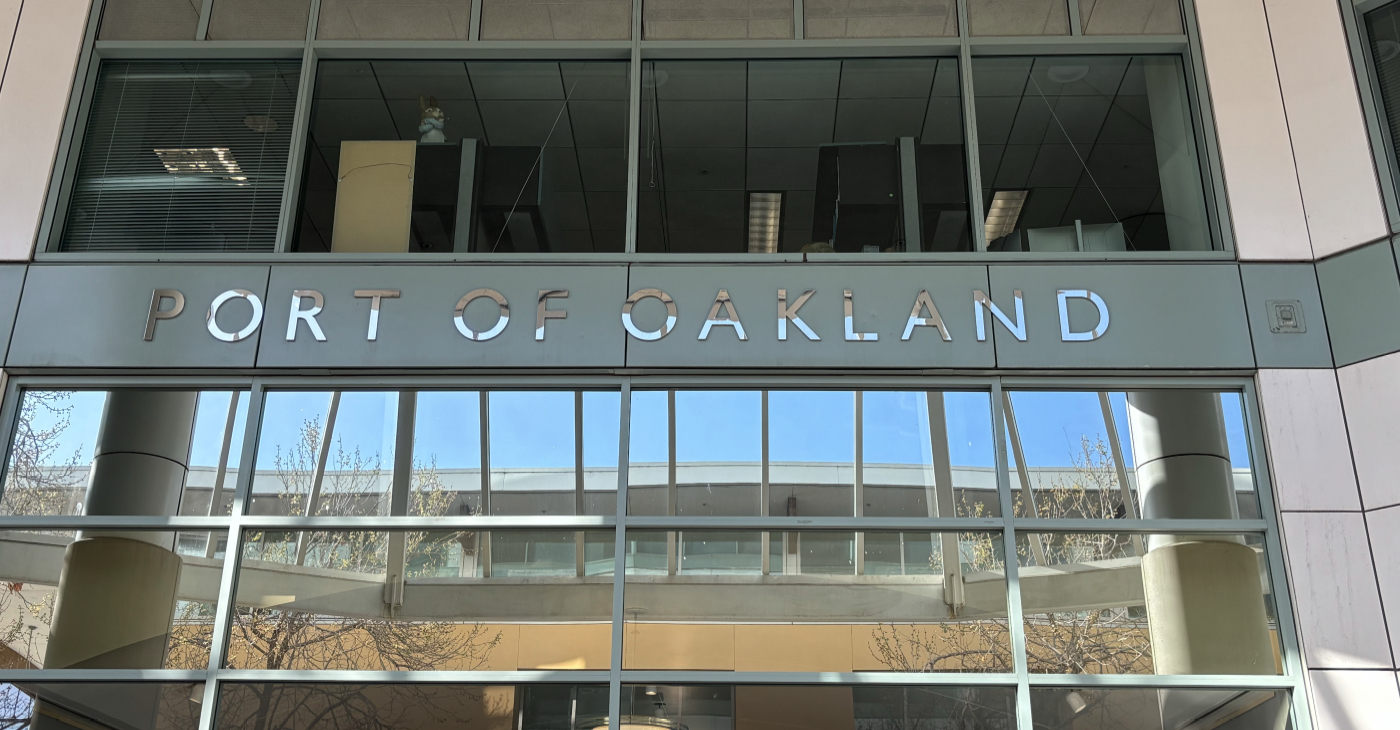
By Magaly Muñoz
The Port of Oakland Commission voted unanimously to change the name of Metropolitan Oakland International Airport to San Francisco Bay Oakland International Airport at a commission meeting Thursday afternoon.
The Port initially announced the name change on March 29, claiming that the change will attract more passengers and enhance the airport’s visibility. They contend that the airport often gets neglected by the public’s lack of knowledge of Oakland’s proximity to San Francisco.
“We want people to know where Oakland is and how beautiful our city is. We want them to visit, we want them to spend their money, and we want to keep our money into our local economy,” Port Commission President Barbara Leslie said at the meeting.
The commissioners shared anecdotal experiences and research to explain how this new name change will elevate and add to the growth of Oakland, not take away from their Bay Area neighbors.
The Port claimed that local residents had been asking for more options in domestic and international flights, but in order to do that, outside travelers need to be aware of Oakland’s presence first.
Since the announcement of the new name, San Francisco leaders strongly opposed the suggestion for a change, the City Attorney going as far as threatening legal action.
SF City Attorney David Chiu announced Monday that his team sent a letter to the Port of Oakland, writing that if Oakland goes forward with the name change, the city will go forward with a lawsuit to prevent the use of their trademarked name.
San Francisco owns U.S. federal trademark registrations for the marks “San Francisco International Airport”, the letter says.
Chiu further claimed that the name change will only cause confusion and chaos for travelers who are used to seeing the San Francisco name in the SFO trademark.
“We want to see the entire Bay Area thrive as a tourist destination and expand our offerings to visitors, but this proposal is not a legal or practical way to go about it. If Oakland moves forward with this proposal, San Francisco will pursue legal action to prevent misuse of our trademark,” Chiu said.
SF Mayor London Breed joined Chiu’s letter, stating that Oakland does not need to add the internationally popular city to its brand in order to grow its services.
“[Oakland] is rich in culture and wonderful people and has its own unique identity. It does not need the name San Francisco as part of its airport to stand out,” Breed wrote.
The Port defended its proposed actions, saying that if the vote did go forward, they would “take all appropriate measures to defend its right to use this accurate geographic identifier.”
“The proposed name modification will clarify, not confuse. The new name identifies where OAK is actually located, which is on the San Francisco Bay,” a spokesperson said on behalf of the Port.
Support for the name change extends beyond the Port. Several regional leaders, airlines and community members have come out in support of the name change, including Oakland Mayor Sheng Thao.
“This adjustment isn’t just about signage—it’s about inviting travelers to discover all that Oakland and the region have to offer. From our local dining scene to unique shopping spots and cozy hotels, there’s something here for everyone. Let’s work together to ensure that Oakland Airport continues to serve as a welcoming gateway for visitors and a source of pride for our community,” Thao said.
Because of public outcry amongst residents and leaders in Oakland and San Francisco before and during the Commission meeting, the Board decided to extend the second reading for the proposed name change from the end of April to the first meeting in May. This decision will allow commissioners to connect with community groups and leaders over their concerns for the change.
The Port Commission is scheduled to hold a second reading of the proposed name change on May 9.
-

 Activism4 weeks ago
Activism4 weeks agoOakland Post: Week of March 20 – 26, 2024
-

 #NNPA BlackPress3 weeks ago
#NNPA BlackPress3 weeks agoCOMMENTARY: D.C. Crime Bill Fails to Address Root Causes of Violence and Incarceration
-

 #NNPA BlackPress3 weeks ago
#NNPA BlackPress3 weeks agoMayor, City Council President React to May 31 Closing of Birmingham-Southern College
-

 #NNPA BlackPress4 weeks ago
#NNPA BlackPress4 weeks agoFrom Raids to Revelations: The Dark Turn in Sean ‘Diddy’ Combs’ Saga
-

 #NNPA BlackPress4 weeks ago
#NNPA BlackPress4 weeks agoCOMMENTARY: Lady Day and The Lights!
-

 Activism3 weeks ago
Activism3 weeks agoOakland Post: Week of March 27 – April 2, 2024
-

 #NNPA BlackPress4 weeks ago
#NNPA BlackPress4 weeks agoBaltimore Key Bridge Catastrophe: A City’s Heartbreak and a Nation’s Alarm
-

 #NNPA BlackPress4 weeks ago
#NNPA BlackPress4 weeks agoBaltimore’s Key Bridge Struck by Ship, Collapses into Water

